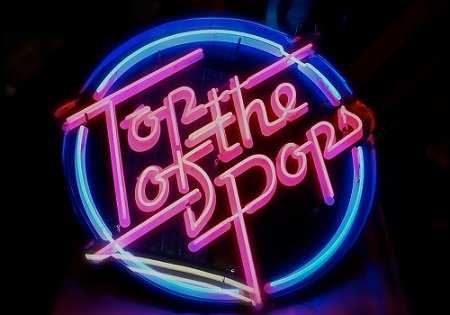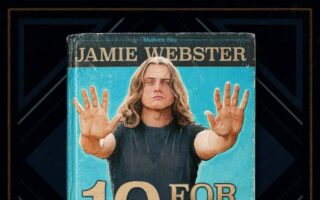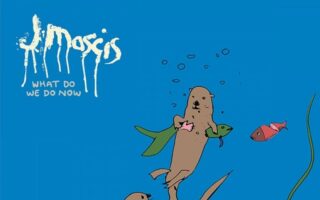It happens every Tuesday at a certain time of year, between ten at night and half past; for thirty minutes my Twitter feed is alive with scorn and cynicism, a nation of detractors railing against just one thing: the abbreviated first weekly edition of Jools Holland‘s Later.
A staple of the BBC’s programming schedule for more than two decades, a move before this year to the Maidstone studios (which gave birth to the likes of Catchphrase) has done little to address the criticisms which the show has faced almost constantly during that time. Far from heralding a break from its highly formulaic script, relocation has instead been a missed opportunity to change the stale, carousel-like procession of the players, to kill off the presenter’s yawn-inducing sidebars with has-beens, to broaden the creative palette, or to alleviate Holland’s lugubrious air of almost complete indifference.
If you were to say what you see, it would surely be a dinosaur sat waiting for Chixulub.
It’s easy of course to beat up on Later, forgetting the wider issue of a lack of screen time dedicated to music on nearly all free to air TV networks, not just Auntie herself. You could argue that the entire genre has been in terminal decline as a proposition since the advent of YouTube – and before that MTV – but either way as the channels of distribution began to fracture at the turn of the century, a critical method of exposure began to close itself off to performers both established and new. From a period in the late 1980s where doom-sayers were screaming that the video medium had become so powerful it had overtaken the song as a creative payload, thirty years later a director’s biggest worry is that anyone will ever see their product at all.
The comparisons are stark; I grew up in the glory era of Top Of The Pops and The Tube – the former enlivened by the occasional presence of John Peel‘s dead panning as he blithely introduced Spandau Ballet, the latter one of the boldest experiments in music television history. It’s hard – actually impossible – to imagine anyone as risky as bands like The Cramps, SPK or Twisted Sister playing live to audiences on a Friday teatime these days. Even after its inglorious demise, following Holland’s ‘accidental’ snigger-worthy expletive outburst, there were still a raft of interesting shows in The Tube’s wake, such as the now long forgotten Snub, or the rave inspired big-fish-little-fish Dance Energy. In the end though, unless we wanted to stay up late at weekends, we came full circle, back to ever decreasing circles of TOTP, the old warhorse always one reinvention away from the contemporary sizzle that would return it to former glories.
For those of us grumpily complaining about a risk averse approach to commissioning that’s left this reality TV-filled vacuum, the producers have at least a couple of cards left to play in their defence. First, there’s the expansion of coverage from music festivals which historically were regarded as the preserve of the hardcore few that were willing to forgo sanitation. Mirroring the increase in popularity of festivals themselves, the summer months are now punctuated by coverage from Download to Bestival, although the expansion of circuit sacred cows has simply underlined the fact that headline acts such as Green Day are still on a three year rotation, whilst the kaleidoscopic diversity of Glastonbury is a barely scratched surface.
The second point may be that the BBC in particular often run a series of themed nights on its less mainstream Three and Four imprints, covering topics as far apart as Tin Pan Alley and Synth Pop. As welcome as these excursions are, the focus always seems to be backwards: at movements whose only common denominators are the fact that they were in their heyday long before MySpace, Pinterest or the iPod. I found myself recently, for instance, asking whether we really needed another three part documentary about the birth of punk rock, and coming to the conclusion that we’d probably heard enough of John Lydon‘s scurrilous but well trodden tales from 1976. It seems that even in documenting the seismic impact of the most radical musical revolution of the last century, the film-makers themselves had taken most of the easy options open to them.
The main drivers for this fault line haven’t occurred through a lack of innovation, willingness to experiment or fear of rejection, but the advance of technology and changes in culture. The most relevant of these is our attitudes towards television as a pastime, and particularly those of children. I was surprised for example to find adverts for songs by the likes of Cheryl Cole on channels such as Tiny Pop, which is aimed at the 5-9 year old age bracket. But it’s hard to argue that with its access to limitless pester power this is where much of the pop market now resides.
Just as remarkable is the fact that a couple of years north of that bracket, kids simply pay less attention to what they’re watching. If you perceive the main market for music consumption to be somewhere between 12 and 25, the facts are stark; between 2010 and 2013 the total hours spent watching TV for teenagers is in decline. Nowadays many of them are channel hopping furiously, whilst at the same time they’re posting/downloading/uploading/tweeting on one device or another. The paradox is as mundane as it is obvious: rather than a noticeable downturn in quality or a lack of aspiring performers sticking the knife between music’s shoulder blades, it’s being beaten back by that very devilish behaviour of our 21st century lives; multi-tasking. As a consequence, what we most loved to sit back and consume is being squeezed out of schedules as tastes have diversified into a series of almost hermetically sealed niche markets.
 Non commercial radio can at least be recognised for spotting the problems earlier than most. At Radio 1 the blood-letting of the uncool has long been a matter of routine, but probably the most telling popular campaign of the last half decade was the one staged in support of the BBC 6Music.
Non commercial radio can at least be recognised for spotting the problems earlier than most. At Radio 1 the blood-letting of the uncool has long been a matter of routine, but probably the most telling popular campaign of the last half decade was the one staged in support of the BBC 6Music.
Here listener mobilisation and protest was such that in a rare act of constructive self awareness, the broadcaster’s trust let conscience be its guide by preventing closure. Compare and contrast this with the shoddy abandonment of Top Of The Pops.
There is an argument that music, abstracted from its performance-and-appreciation context, is more ubiquitous than ever. But the fact that programmes like the X Factor happen to feature warbling celebrity wannabes misses the point. In reality British television producers – much like the music industry suits – have been on the run for years, delivering the genre to a tried and tested formula which has varied little in the last fifty years. Programmes like those full of weepy, script driven pawns are simply what they are – the good old, spruced up talent show. The presenters may look and act a long way from pioneer Hughie Green, but the end result is the same, the songs a slave to the format, with light entertainment the only winner.
The only conclusion possible is one of chicken and egg. Do we watch less music content because it’s so hard to find, or vice versa? A decade of increasingly homogeneous programming has left few outlets for serious artists, unless of course your PR is mates with Mr. Holland’s production team. The pragmatic view is that whilst Later is now something of a fig leaf for content programmers who’d much rather bombard us with chefs, Downton and Timelords, we should be thankful that at least it doesn’t have a judging panel.
Yet.







I don’t watch TV much, but there’s a certain TV show I still miss and it’s “Rockpalast”, legend.
I used to love Later. Too bad they have such awful guests lately, like that asshole Kanye West.
There’s a 24/7 TV station dedicated to music you may like called Vintage TV, it’s on Sky, Virgin and Freesat (plus web streaming)